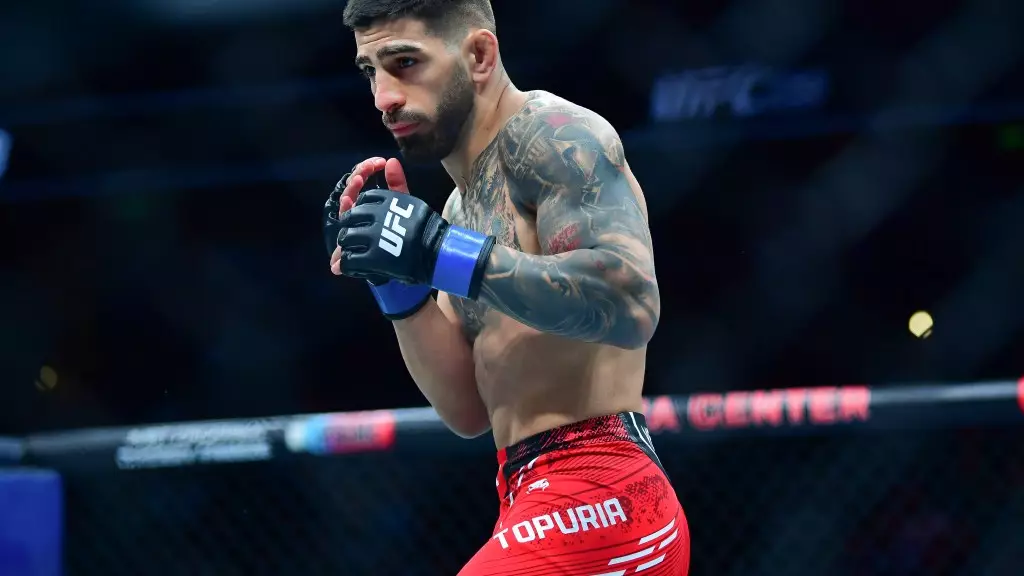Dustin Poirier, a seasoned veteran in the UFC lightweight division, has raised eyebrows with his endorsement of Ilia Topuria’s potential to dethrone the reigning champion, Islam Makhachev. Currently holding an impressive record of 16-0 and sporting a perfect 8-0 in the UFC, Topuria has catalyzed discussions regarding his desire to step up from the featherweight division. Poirier acknowledges Topuria’s robust striking skills and finishing ability, considering these elements vital for any fighter looking to succeed against Makhachev. “He has the power and the skills to knock anybody out,” Poirier stated, emphasizing Topuria’s striking prowess across weight classes.
Despite Poirier’s optimism regarding Topuria’s technical skills, he remains wary of the size and strength mismatches that can emerge when a fighter transitions between weight classes. Makhachev, renowned for his grappling ability and size advantage in the lightweight category, poses unique challenges that could stifle Topuria’s offensive strategies. Poirier noted that even if Topuria has an imposing walk-around weight of around 190 pounds, the inherent physicality that Makhachev brings to the cage cannot be overstated. The nuance lies in how Makhachev’s size translates into dominance over fighters in grappling exchanges, potentially limiting Topuria’s effectiveness.
Topuria’s path to contention has been nothing short of remarkable. He made history by becoming the first fighter to knock out Max Holloway in the octagon, a feat that speaks volumes about his striking capability. This milestone, coupled with his previous victory over Alexander Volkanovski for the featherweight title at UFC 298, positions him as not just a contender but a serious threat to the lightweight division upon his ascent. However, the question remains whether these accomplishments can mitigate the significant physical challenges that accompany a weight class change.
On the other side of the ring, Islam Makhachev’s recent triumph over Renato Moicano at UFC 311 further solidifies his reputation as a dominant champion, having set a record with four consecutive title defenses. His most recent display of grappling prowess highlighted his ability to control and submit opponents with alarming efficiency. Makhachev’s reliance on wrestling as a cornerstone of his fighting strategy presents an obstacle for Topuria, who may need not only to avoid takedowns but also to find a way to strike effectively from distance against a larger opponent.
As the potential bout between Topuria and Makhachev looms on the horizon, both fighters must prepare for an intense battle of skill versus size. While the excitement surrounding Topuria’s ascent is palpable, the underlying complexities of weight class transitions in mixed martial arts highlight the unpredictable nature of the sport. Fans may eagerly anticipate a clash of styles, but the pragmatic analysis provided by experienced fighters like Poirier serves as a sobering reminder of the challenges that come with stepping up against a fighter like Makhachev. Only time will tell if Topuria can defy the expectations and carve his name into the annals of UFC history.

